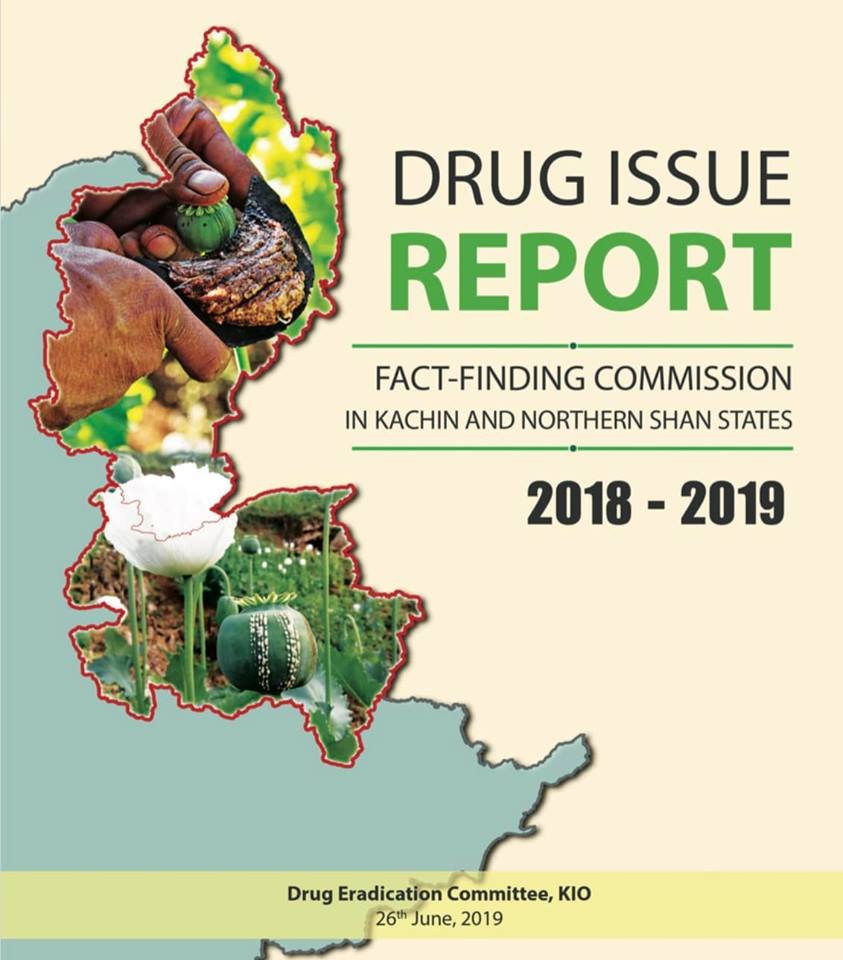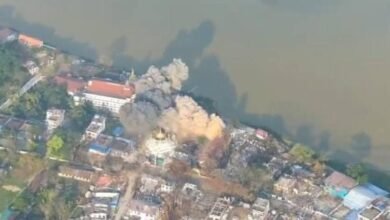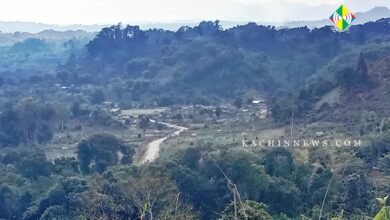KIO: Opium Poppies Cover Twice as Much Land as UN Reported

According to the KIO, most of Kachin State’s poppy plantations are located in areas under the control of military-backed PMFs or the BGF.
There is double the amount of opium poppy cultivation in Kachin State as was previously documented by the UN Office on Drugs and Crime (UNODC), the Kachin Independence Organization (KIO) has stated.
The KIO’s Drug Eradication Committee released a report on Wednesday, the International Day Against Drug Abuse and Illicit Trafficking, which counters previous claims made by the UNODC in their 2018 Myanmar Opium Survey.
The UNODC estimated that there were 3,400 acres of poppies being grown in Kachin State; the KIO puts this figure at 6,918 acres.
“The objective of publishing this drug report is to let people understand the roots of drug production in Kachin and northern Shan states and how to systematically solve this problem,” Col Naw Bu, who is in charge of the KIO’s information department, told KNG.
According to the KIO, most of Kachin State’s poppy plantations are located in areas under the control of military-backed People’s Militia Forces (PMFs) or the Border Guard Force (BGF), in Kanpaiti, Sadon and the Hukawng Valley. These areas are known to be controlled by the Burma Army, PMFs, and the BGF. Poppies have also reportedly increased in Tanai, Sumprabum and the Putao area.
“Narcotics have not been eradicated in Burma because poppy plantations and drug production have been carried out in the control areas of PMFs, which are backed by the army. This should be stopped,” Col Naw Bu explained. “The government and the Tatmadaw have blamed ethnic armed organizations for the difficulties in eradicating narcotics. In my opinion, if we can cooperate for the eradication of narcotics in this country after a successful political dialogue, peace will be restored and drug eradication activities will be successful.”
The report also reveals that heroin and methamphetamine factories are typically based in northern Shan State in areas under the control of PMFs, and are supported by investors from China. From here, the KIO said that drugs are sent throughout Kachin State.
Local authorities and police reportedly “turn a blind eye” to the drug trade, particularly in the jade mines of Hpakant and the gold mines of Tanai.
The report recommended that the government enforce anti-drug laws and tackle the corruption that has allowed the narcotics trade to flourish.
Seized narcotics were burned in many ceremonies throughout Burma on Wednesday to mark the International Day Against Drug Abuse and Illicit Trafficking




